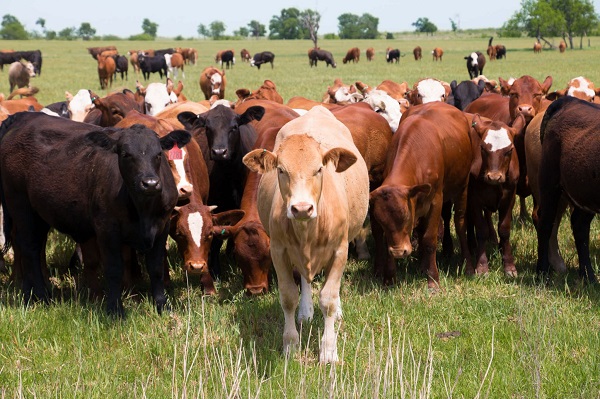A livestock policy document designed since 2017 to guide Ghana’s livestock development is still gathering dust on the shelves of the Ministry of Food and Agriculture (MoFA), president of the Ghana National Association of Cattle Farmers (GNACAF), Imam Hanafi Sonde, has disclosed.
The inaction, Imam Sonde told the B&FT, has been impeding growth in the cattle sub-sector of the livestock industry.
Data from the GNACAF show the cattle sub-sector alone contributes some US$700million in jobs for the economy each year, with the value chain comprising more than 6 million employees (breeders, shepherds, meat traders, milk traders, transporters, butchers, veterinary products, and the hospitality industry among others).
With dairy product imports moving northward from US$90million in 2018 to US$400million in 2021, Imam Sonde appealed for government to act urgently on implementing policies that spur growth in the livestock sector and transform the domestic industry.
“I was part of the Cattle Ranching Committee that was established to design the policy in 2017. We sat through several meetings and designed the policy proposal – a very comprehensive one chaired by Dr. Oppong Anane. Unfortunately, implementation has become a problem for MoFA,” Imam Sonde indicated.
The Association is worried that MoFA is dedicating all its commitment to crop production, to the animal sector’s detriment.
Nungua, Amrahia and the Senegal example
Indeed, the Nungua Farms and Amrahia Dairy Farm – which are key facilities for local cattle farmers and established to boost dairy production for industrialization – have been denied modern technologies since their inception, and are currently defunct.
In Senegal, for instance, there is a Ministry for Livestock that concentrates on livestock production. That country has modern ranches with appropriate technology for animal and milk production. In 2017, the herd in Senegal was estimated to include about 3.6 million cattle.
The GNACAF however questioned what it will take for government to set up modern demonstration farms to assist cattle famers with capacity building to augment production.
GNACAF’s short-term strategy
The Association, according to Imam Sonde, has decided to help itself and no longer wait for government.
“We have begun talks with some foreign partners to assist us with the right methods and technologies on production – capacity building in insemination, milk production, among others”
In Ghana, cattle farmers rely heavily on natural grazing – which is not ideal for milk production, especially in the dry season when there are no pastures.
The Association maintains that special improved imported breeds for insemination are the solution to increase production and reduce the escalating import rate.
The current status of a strategy by MoFA to import cattle from the USA for cross-breeding to boost production since 2018 is currently not known.
There is currently an estimated 3 million cattle in Ghana, the GNACAF said.










